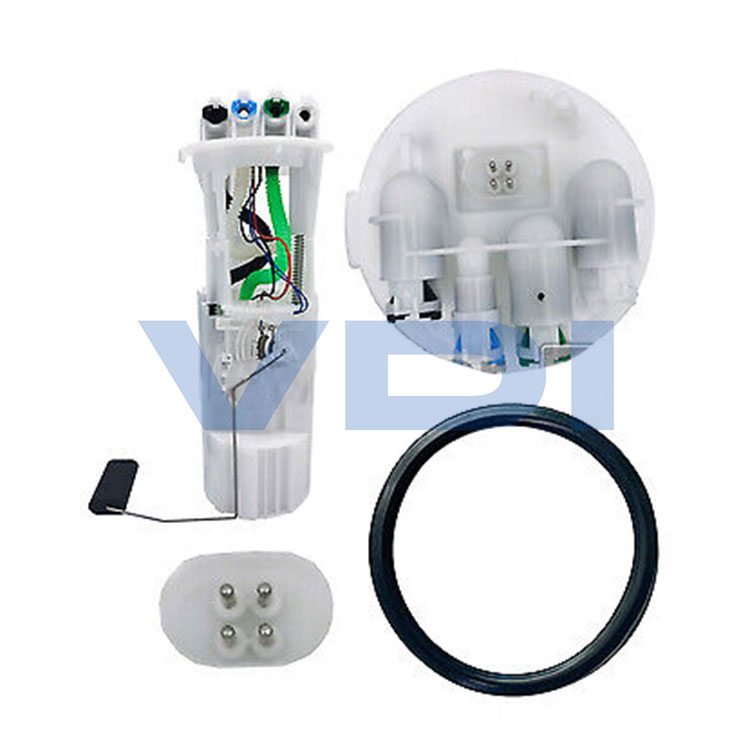Fuel Pumps: The Heart of Your Vehicle’s Fuel System
2025-04-17
When you turn the key to start your car or press the start button in newer models, there's a silent hero making sure the engine gets the fuel it needs to run smoothly: the fuel pump. This crucial component is an often-overlooked part of your vehicle's fuel system, but it plays a vital role in ensuring that your engine runs efficiently, safely, and reliably. In this blog, we will explore the importance of fuel pumps, how they work, and why maintenance is essential for vehicle performance.
What is a Fuel Pump?
A fuel pump is a mechanical or electrical device that delivers fuel from the tank to the engine. The pump is responsible for maintaining the correct fuel pressure and ensuring the fuel reaches the engine in a steady, controlled manner. Without it, the engine wouldn’t receive the necessary fuel to generate the power needed for combustion, and the vehicle would not run.
Types of Fuel Pumps
Fuel pumps come in two main types: mechanical fuel pumps and electric fuel pumps. The type of fuel pump in a vehicle depends on the design and the fuel system used. Here's a closer look at each:
1. Mechanical Fuel Pumps: These are typically found in older vehicles with carburetor systems. A mechanical fuel pump is driven by the engine's camshaft, which pumps fuel from the fuel tank into the engine. These pumps are simple, reliable, and durable, though they are less common in modern cars due to the advent of fuel injection systems.
2. Electric Fuel Pumps: Most modern vehicles use electric fuel pumps, which are typically located inside the fuel tank. These pumps are powered by the vehicle’s electrical system and are responsible for pumping fuel to the engine at a constant pressure. Electric fuel pumps are preferred for their ability to deliver higher fuel pressure and better fuel flow control, which is crucial for fuel-injection engines.
How Does a Fuel Pump Work?
No matter the type, all fuel pumps perform the same basic function—delivering fuel from the tank to the engine. Here’s how the process works:
1. Fuel Intake: The fuel pump draws fuel from the tank through a fuel filter. The filter ensures that any impurities or debris in the fuel are removed before it reaches the pump.
2. Fuel Delivery: Once the fuel is filtered, the pump moves it to the engine through a fuel line. In electric fuel pumps, the pump is activated when the ignition is turned on, and it maintains a constant pressure to keep the fuel flowing smoothly.
3. Fuel Injection: Once the fuel reaches the engine, it is directed into the fuel injectors. The injectors then spray the fuel into the combustion chamber, where it mixes with air and is ignited by the spark plugs to power the engine.
The key role of the fuel pump is to ensure that the engine receives the right amount of fuel at the correct pressure for optimal performance.
Signs of a Failing Fuel Pump
Over time, fuel pumps can wear out or become damaged. When this happens, you may experience a number of warning signs. Here are some common symptoms of a failing fuel pump:
1. Engine Stalling: If the fuel pump is not delivering fuel properly, your engine may stall unexpectedly. This is particularly noticeable when driving at high speeds or under heavy acceleration.
2. Difficulty Starting the Vehicle: A weak or failing fuel pump can prevent the engine from getting enough fuel, making it difficult to start your vehicle, especially after it has been sitting for a while.
3. Decreased Performance: If your car is struggling to accelerate or if the engine seems to sputter while driving, the fuel pump may not be providing enough fuel pressure.
4. Whining Noise: A loud, high-pitched whining noise coming from the fuel tank may indicate that the fuel pump is working harder than it should be. This is a common sign of a failing pump that may need to be replaced.
5. Poor Fuel Efficiency: When the fuel pump is malfunctioning, it can cause the engine to consume more fuel than usual. As a result, you may notice a decrease in your vehicle’s fuel efficiency.
Why is Fuel Pump Maintenance Important?
Fuel pumps are designed to last a long time, but like any other component in your vehicle, they require maintenance to ensure they perform at their best. Proper maintenance can help avoid costly repairs and prevent breakdowns on the road. Here’s how you can take care of your fuel pump:
1. Regularly Replace the Fuel Filter: The fuel filter prevents debris and contaminants from entering the fuel pump. A clogged filter can put unnecessary strain on the pump and cause it to fail prematurely. Replace the fuel filter according to your vehicle manufacturer’s recommendations.
2. Keep the Fuel Tank Full: Running your vehicle with a low fuel tank can cause the fuel pump to overheat. The fuel pump relies on the fuel in the tank for cooling and lubrication, so keeping the tank above a quarter full is a good practice.
3. Use High-Quality Fuel: Poor-quality or contaminated fuel can damage the fuel pump and other components of the fuel system. Always fill your vehicle with high-quality fuel from reputable gas stations.
4. Listen for Unusual Sounds: Pay attention to any strange noises coming from the fuel tank, such as whining or humming. These could be signs of a failing fuel pump that needs attention.
Conclusion
The fuel pump is an essential part of your vehicle’s fuel system, ensuring that the engine receives a steady and adequate supply of fuel. Without a properly functioning fuel pump, your vehicle would struggle to start, run inefficiently, and eventually stop working altogether. By understanding the role of the fuel pump and maintaining it properly, you can avoid unnecessary repairs and ensure that your vehicle continues to run smoothly for years to come.
If you experience any signs of a failing fuel pump, such as stalling, difficulty starting, or poor performance, it’s essential to have it inspected and replaced by a professional mechanic to prevent further damage and maintain the efficiency of your vehicle.



